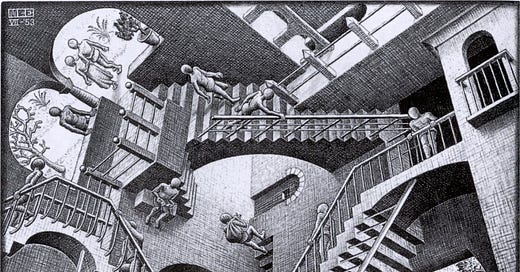Rabbi Nachman of Bratslav teaches that we can know a thing’s essence by knowing all its limitations and imperfections. If I want to know what perfect wisdom is, I can do so by coming to a total knowledge of what perfect wisdom isn’t.
If you want a literary context for this idea, recurrent in his work, check out his tale “The Chandelier Maker.”
But there’s…
Keep reading with a 7-day free trial
Subscribe to What Is Called Thinking? to keep reading this post and get 7 days of free access to the full post archives.



